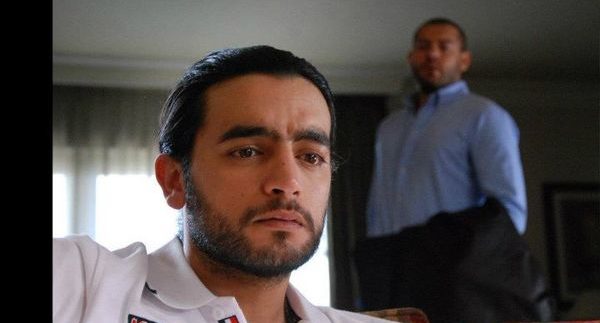
Ridiculously translated into ‘A Whole One’, Wahed Saheeh isn’t a romance as much as it is a film about
unrequited love.
douchebag but he’s charming, rich and successful, so girls fling themselves at
him anyway. Wahed Saheeh recounts his
relationship with four women; Nadine (Basma), Amira
(Alloush), Mariam (Raees) and Farida (Yousef). Each one represents a
certain aspect of Abdullah’s version of the ideal woman. Nadine is his best
friend and knows him better than anyone, Amira’s the only woman he’s been able
to emotionally connect with, Mariam is a stereotypical good girl, and he and Farida have great sex. Things get even
more complicated as he comes under pressure from his mother to pick
a wife and settle down.
Salama is pretty convincing as a charming womaniser with a huge ego; yet
his breakdown near the end of the film just isn’t as believable. One scene in
particular comes to mind where Abdullah is overcome due to Amira’s
disappearance and is ranting and raving to a very sympathetic Nadine. We’re
told that Abdullah’s absolutely distraught yet it’s Nadine that looks like
she’s just lost the love of her life.
Basma as Nadine is the film’s undisputed highlight. She’s Abdullah’s best
friend who happens to be going through a divorce for reasons she hasn’t made
him privy to. She does her best to set Abdullah up with her cousin Mariam, whom
he takes a fancy to due to her pure, sweet, feminine demeanour. Through
Mariam and Amira’s arcs, the film succeeds in critiquing Egyptian society on
two fronts.
Firstly, Abdullah and Mariam signify the double standard in our society,
where the woman has to be as pure as the driven snow while the man can sleep
around. It’s quite clear that Abdullah never loved Mariam or viewed her as his
equal; he’s just been conditioned into believing that he’s entitled to a wife
like her.
Secondly, Amira’s arc deals with the problems facing interfaith
relationships. As a devout Christian, she deals with this problem on two
fronts, once in the capacity of Abdullah’s girlfriend and another as the
daughter of a man who converted to Islam to marry a Muslim woman. She wants to
be with Abdullah but he doesn’t want to go against her religion or subject her
kids to the kind of pain and confusion that her dad put her through.
The weakest link character-wise is Youssef’s Farida. She’s a married
society wife/doctor who has commissioned Abdullah to work on a project with
her. They begin an affair and suddenly this very assertive
woman turns into a grovelling idiot when Abdullah throws one of his tantrums.
In an unhappy marriage with a gay man that nonetheless afforded her riches, her
arc tries, rather shallowly, to explore the concept of marriage as a business
contract and not as a romantic union.
The film’s soft focus quality adds to the film’s overdramatic
nature, yet the liberal use of US Top 40 songs is really jarring. The way the
many storylines are juggled is pretty impressive. The characters are all
connected by Abdullah but we also get to know about their lives away from him. And
while the extensive use of voiceover manages to cram in a lot more about the
characters than would normally be feasible, they still come across as rather
shallow and their storylines occasionally become stereotypically melodramatic.
Write your review
recommended
 Arts & Culture
Arts & Culture
Local Festival Going Global: Sharm El Sheikh International Theatre Festival for Youth in Poland Takes Off This Weekend
Egyptian Artists festivals +5 Arts & Culture
Arts & Culture



